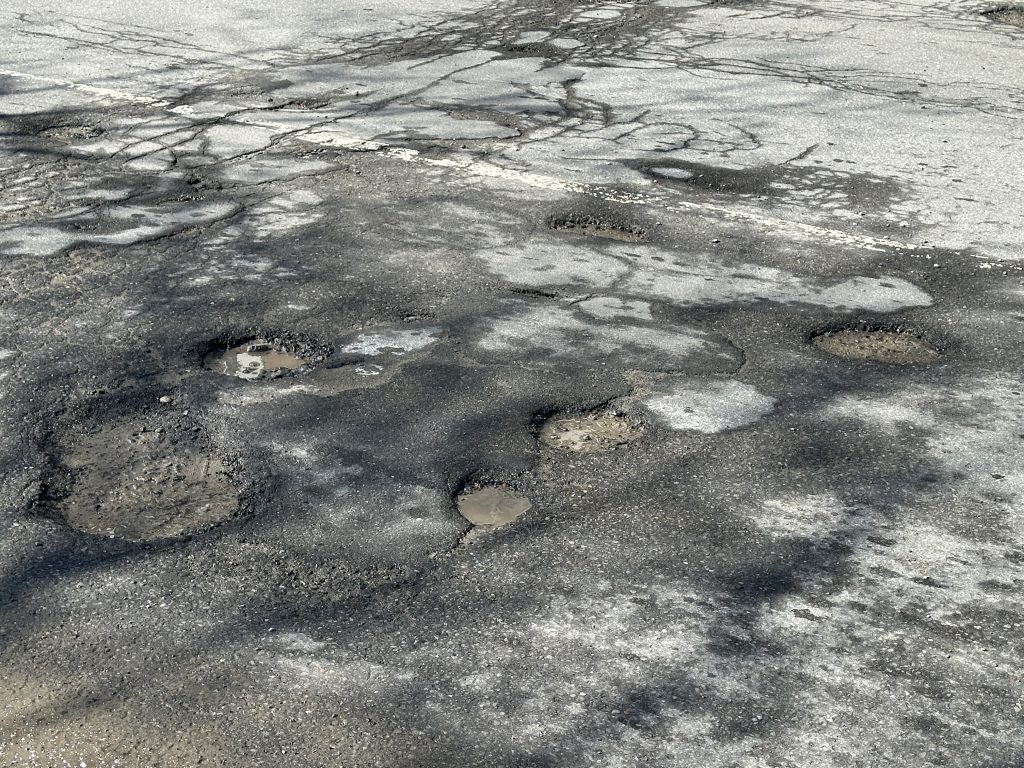Quebec announces $300-million catch-up plan for students after public sector strikes

Posted January 9, 2024 4:00 am.
Last Updated January 9, 2024 7:06 pm.
Education Minister Bernard Drainville unveiled a $300-million catch-up plan to help half a million Quebec students make up for lost class time. Public school students were back in the classroom Tuesday after an end to labour strife that had kept some home since late November.
“It’s my duty to do everything I can as education minister to help students catch up,” said Drainville in French.
“Education is a sacred value in Quebec society, and we need to do everything we can to help the students to catch up and overcome the delays in the teaching and the learning that they have suffered because of the strikes.”
He unveiled five specific measures as well as four others connected to the school calendar, and says everything is on a voluntary basis in terms of teachers to help make this happen. But the plan will be put into place differently from school to school, as each student is different and needs are different from one service centre to another.
“Each school will detail its catch-up plan and the service centres will coordinate.”
It starts this week and next week to help identify what the needs of students are and which members of the schools will help on a voluntary basis to help students catch up. By the week of Jan. 22, Drainville says they will communicate with parents of students who could benefit from a catch-up plan, like tutoring. If the parents accept, then the week of Jan. 29, catch-up plan measures begin.
He said it’s a shared responsibility between teachers, parents, schools, students, and the government to make this plan work and help students as much as they can.
“I’m skeptical,” says Robert Green, a high-school teacher in Montreal.
“They did this during the pandemic as well. Announce things that they expected the school board just to put in place a week later, and that’s not the way education bureaucracies work.”
Marion Miller, another teacher in Montreal, says she’s happy there’s a plan put in place to help students catch up, but there’s also a level of “frustration.”
“We’re never really thinking about those students in a preventative way,” said Miller.
Drainville maintains it’s different from one student to another, one school to another, and one school service centre to another.
“We’re going to roll up our sleeves… and help our students succeed,” the minister said.
He believes there will be enough education staff volunteering, as well as retired staff, to make this happen. There will be overtime pay and pay in accordance to collective agreements.
Drainville said some students missed 24 days of school depending on which service centres they were in and which unions they were affiliated with.
Measures being put in place:
Tutoring: students access more tutoring by teachers, retired teachers, or student teachers to help outside class time. There will also be specialized help for students who need more. Tutoring could happen at lunch time, after classes, at the end of the school day. Drainville says schools and service centres will need to put this in place with their staff. “They know their students,” he said. “Do everything you can to help students so we have the least amount in a failing position.”
Free catch-up classes for Sec. 4-5 students: this includes free classes during the school year and summer classes if needed for those who may fail a ministerial exam, extra help to get their diploma.
More support for community groups that help in education: like helping prevent dropouts and helping with francization. Government will give $42 million for these organizations to help.
Offering catch-up during spring break: some schools could be open to give services to students who need it. It’ll be up to schools and service centres to see if there is a need for it on their territory to help students catch up. Would be offered by the school’s staff on a voluntary basis.
Modifications to school calendar – three measures:
-New calendar for ministerial exams for May-June: exams pushed two weeks back to give students more time, pushed back two to seven days to maximize more teaching time and for students to learn more. No new dates yet, but Drainville says it’s certain no exams after June 23.
-They will go back to pandemic measures for weight of exams. Exams for end of year worth 10 per cent instead of 20 per cent for final mark. Ministerial exams for Sec. 4 and 5 will be worth 20 per cent instead of 50 per cent. Drainville also says Sec. 4 and 5 ministerial exams will be based on the main “know-how subjects” so students who did a month of strikes won’t be penalized.
-Possibility to push back by two weeks the report card of March 15 to end of March to give schools more teaching time and maximize catch-up time.
Green says given the situation, the government should get rid of ministry exams this year.
“Under the circumstances where we have some public school kids that have lost five weeks of school, others just under two weeks and then the private school kids who have lost nothing, I think that is the time to cancel the ministry exams and allow teachers to do the evaluation based on what they’ve taught in class.”
Major public-sector unions reached tentative deals with the provincial government days before the new year, though they still have to be ratified by members.
One of those unions — the Fédération autonome de l’enseignement, or FAE — went on an unlimited strike on Nov. 23, resulting in the closure of 800 schools for 22 days, keeping about 368,000 students home.
Other schools were shuttered for 11 days sprinkled over several weeks as teachers represented by a different negotiating bloc held strike days of varying lengths.
Meanwhile, private school students missed no class at all.
EMSB to identify which students need most help
Schools within the English Montreal School Board (EMSB) lost eight days of classes. Chair Joe Ortona says they are not the “same situation as much of the rest of the province” because of that.
“It’s obviously still a concern and we’re obviously going to meet those challenges to make sure that the children didn’t fall behind, that they’re compensated for the days that have been lost,” Ortona said.
“We’re going to be identifying the students that need the extra help and we’re going to be providing them the help that they need, either in person or online or in whichever way is efficient and convenient to them.”
Ortona says it’s still too early — with the announcement from Drainville just hours old — to know how much money from the $300 million the EMSB will get.
“I’m looking forward to seeing the details and seeing how much we’re getting and how we can put that money to good use for the students,” Ortona said.
“The details are to come, but we’re going to make sure that no child is left behind as a result of this.”
-With files from The Canadian Press








